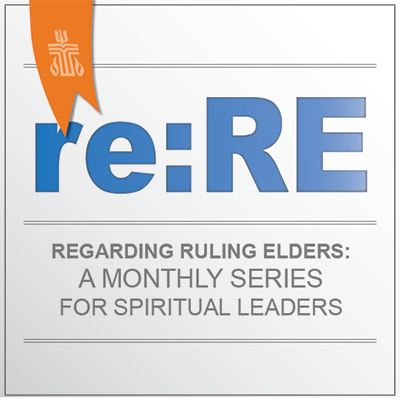“‘Zacchaeus, hurry and come down; for I must stay at your house today.’ So he hurried down and was happy to welcome him” (Lk. 19:5–6).
Zacchaeus gets a bad rap in the biblical character personality review. He’s a tax collector. Actually, he is a ruler among the tax collectors as the passage offers. Which essentially translates into “despised bureaucrat” who not only takes the peoples’ money but bosses the other people who also take the peoples’ money. Zacchaeus is not a popular, beloved, sought-after neighbor or citizen in Jericho. So, it’s quite the biblical surprise when, without a moment of hesitation, Zacchaeus pops down out of the tree and welcomes Jesus into his home.
At the 2019 Presbyterian Youth Triennium, Christian speaker, writer, and theologian, Sandra Van Opstal, offered another perspective on Zacchaeus. Van Opstal offers that Zacchaeus is so much more than a “wee little man.” He was a man who responded to Jesus’ need for a roof and a meal with no hesitation. He was a person who received and provided true hospitality. No polite demurring words or warnings about Jesus potential loss of reputation if seen eating at Zacchaeus’ home. No (at least from what we can distill) worried preparations or fretful hand-wringing at the thought of entertaining the son of God. No. With Zacchaeus there was simply the sense of pleasure. He was “happy” to welcome Jesus. Van Opstal went on to describe the interaction of Jesus and Zacchaeus as “the ultimate description of hospitality.” The ease to share one’s need (Jesus) and the eagerness to respond to the need of another (Zacchaeus).
We tend to think of hospitality as something we offer. And within that offer there is effort, preparation, planning, execution of the plan, clean up, etc. It seems that hospitality equals work. That hospitality involves “sacrifice.” But hospitality is actually very simple. Profound, in fact, in its simplicity. Hospitality happens within the tiny, almost imperceptible movements and moments of life. First, hospitality happens when we NOTICE. Second, hospitality happens when we OPEN ourselves. Third, hospitality happens when we GIVE and finally, when we RECEIVE.
Don’t let your desire to practice hospitality create a burden for someone else. Hospitality is not about you. It is about how you can provide comfort, joy, and care for others.
According to VanOpstal, the story of Zacchaeus and Jesus is one of hospitality as demonstrated by two completely different people. Jesus threatens his already shaky reputation to go and stay at despised Zacchaeus’ home, providing Zacchaeus with social credibility of hosting Jesus. Zacchaeus, without hesitation, happily welcomes Jesus into his home. When we think about hospitality, we tend to focus on the party host and not the party attendee. We think about the person who prepares and delivers the care package to the sick person as the person who is practicing hospitality. However, there is also hospitality in receiving the care as offered. Hospitality happens in the intent and the interaction. There is a loss of control in the type of hospitality practiced by Jesus. Taking on an unknown host, house, meal, conversation. Practicing hospitality means noticing all of the host’s efforts, being open to the gifts offered, giving of our vulnerability, and committing to receiving all of the host’s hard work. And on the Zacchaeus end of hospitality, offering it without regret. Make an invitation and commit to enjoying the time or the interaction. Like Zacchaeus, be happy to welcome.
Throughout the church, there is a leaning toward faith being as familiar to us as breathing. Faith being practiced rather than just talked about. We call these practices—acts, gestures, habits that we take on and that we practice—just as we would practice piano, or soccer, or choral music, or meditation. We incorporate the faith practice into the regular moments of our day, our worship, our work, time with friends, staff meetings, session meetings, family meals, our comings and goings everywhere.
So, what does it look like to practice hospitality? It looks like Jesus and Zacchaeus. Noticing. Being open. Giving. Receiving. Small, almost invisible gestures. Large lavish parties. Visiting with a neighbor on the front porch. Letting a car go ahead of you. Following up with a text or an email when you notice someone struggling. Pizza gift cards for young people starting middle school. A tub of snacks and drinks for delivery drivers during the busy holiday season. Fresh coffee as a session meeting surprise. Sending a thank you note to a party host.
Questions for Discussion:
- The first step involved in incorporating hospitality as a practice is to NOTICE. Set the goal to begin to notice people around you. What do you see? When you see distress, notice it. Follow up carefully and thoughtfully. Just as Jesus noticed Zacchaeus in the tree, see what you can see around you.
- What does it mean for a church to practice hospitality? Who could benefit? Who is in need? How can we, as the session, practice hospitality? With each other? With the members of this church? With those in our neighborhood and community? With those in the world? How can we be like Jesus and Zacchaeus?
Gina Yeager-Buckley serves as the Mission Associate for Christian Formation—Youth/Presbyterian Youth Triennium. Gina lives and works in Louisville, Kentucky. She is married to Andrew. A certified Christian Educator, volunteer youth team member at her church, and an enthusiastic advocate for young people in the church, Gina looks for ways to encourage churches to be shaped by the faith and life of the young people in their midst.

